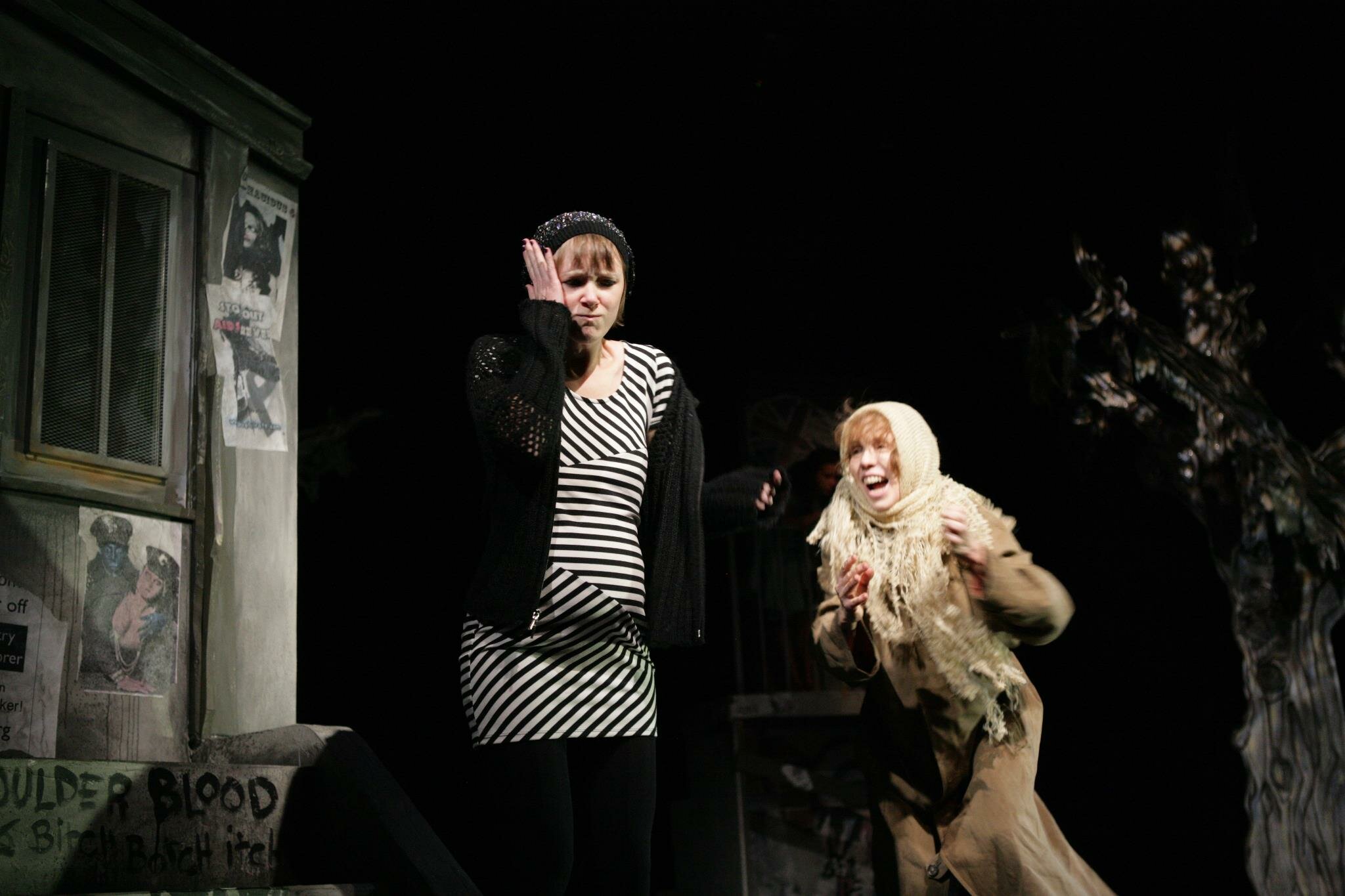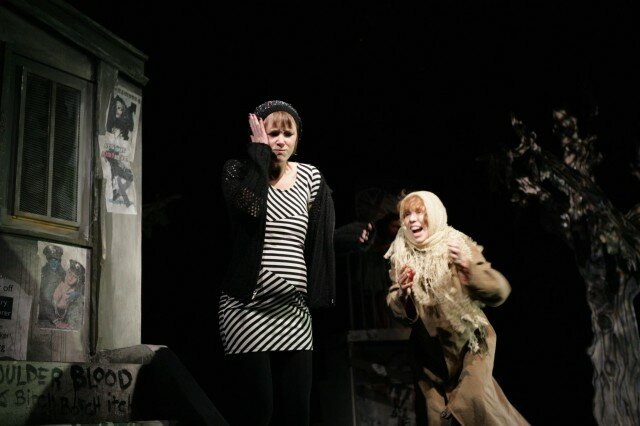Tony Kushner has a passionate relationship with words. If you have even a fraction of that passion you will be swept away on a blissful tide by New City Theatre’s production of Kushner’s Homebody (through June 22, 18th & Union).
There is more to Homebody than language—though if you’re not up for some serious vocabulary you may find the play a bit daunting. We also find in this show a delicate and piercing character study with implicating questions about society and geopolitics. All this comes to us through a monologue presented over tea in the kitchen of a London flat, all entirely unremarkable.
This Homebody is an English woman whose life is proscribed by a dead marriage nursed along with antidepressants, occasional parties, and books. She reads too much, she tells us, “not much but too much.” Those books expand her life (and her vocabulary) to a boundless horizon, which includes the city of Kabul via an antique guidebook.
This prescient play was written in the late nineties and is set in 1998. You may be more familiar with its title when paired with a later companion piece as Homebody/Kabul, first performed in 2001. The latter script brings the worlds of Kabul and London into direct conflict. In Homebody those worlds collide by proxy through the Homebody’s real and imagined encounters with a London merchant of Afghan goods.
That’s the story; a woman reads about Kabul and buys Afghan hats for a party, and Kushner reveals a great deal in that little non-event of a journey. The play really is the thing here. Director John Kasanjian’s production doesn’t get in its way either by excess or by insufficiency. Nina Moser and Lindsay Smith’s design is flawless and the most noticeable feature of the production is Mary Ewald’s performance.
Ewald’s recent Seattle stage appearances mark her as a specialist in bravura monologues of heady verbosity. A year ago she wowed audiences in this same theatre with Beckett’s Happy Days. Last fall she gave us the title role of Caryl Churchill’s The Skriker with its Joycean opening monologue.
Here she feels at once centered and distanced. That protective layer between performer and character works for this sheltered but curious woman and helps sell the fundamental problem of the solo performance: her reason for speaking. There is an initial moment in which Ewald discovers the audience and thereafter she holds forth like a college professor. The intimate setting of a dozen seats in the rearmost room of New City Theatre’s space aids this achievement without being so intimate that one expects her to share her little pot of tea.
In Ewald’s most present moments that composed performative distance fractures as the Homebody’s emotions get the best of her. Whenever rapturous flights of language lift her far beyond her domestic cloister a sudden self-consciousness cuts off her voice. She collapses into mumbled apologies.
Sixty-five minutes of butter-rich language from a single voice is inebriating and almost too much but there is little risk in the excess. The only danger in this mass of bon mots and novel truisms is that one may have to acquire a copy of the script in order to fully and physically grasp the words.

